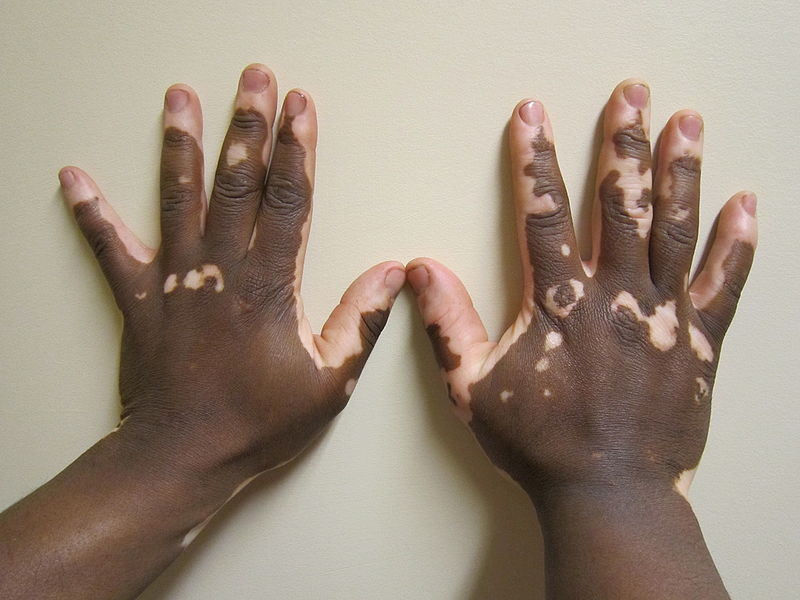Team:Stockholm/Project
From 2010.igem.org
m |
|||
| Line 1: | Line 1: | ||
| - | |||
| - | |||
==Project== | ==Project== | ||
| - | + | Many different ideas were discussed during the startup of our iGEM project. We finally decided to focus on the skin disorder Vitiligo. We have discussed our project idea with two leading Vitiligo researchers in Sweden (Mats J. Olsson & Håkan Hedstrand, Uppsala University), both who have shown us full support to go ahead with the project. We have also been given a grant from the [http://www.vitiligoforbundet.se Swedish Vitiligo Association]. | |
| - | + | ||
'''Vitiligo''' | '''Vitiligo''' | ||
| + | [[Image:Vitiligohands.jpg|right|200px|Picture taken from: http://en.wikipedia.org/wiki/File:Vitiligo2.JPG Creative Commons Attribution-Share Alike 3.0 Unported License]] | ||
| + | |||
| + | Vitiligo is a skin disorder causing affected parts of the skin to turn white. This is due to abnormal melanocyte function, resulting from the immune system mistakenly targeting the pigment cells, making Vitiligo an autoimmune disease. Vitiligo usually begins before the age of 20 and is estimated to affect 0.5-2 % of the world population. It is a very complex disorder and there is a lack of good treatments. | ||
| + | |||
| - | + | '''Spot on Treatment''' | |
| - | + | We want to approach this disorder in several different ways, with the aim to re-pigment the skin using synthetic biology. It will not cure the disorder, but it has the potential of keeping the loss of pigment cells under control and also stimulate new pigment cells to develop, thus replacing the ones that have been destroyed. | |
| - | + | Our goal is to engineer bacteria that express and secrete different biomolecules and proteins that may be potentially beneficial in re-pigmentation of Vitiligo-affected skin. These molecules will then be relocated through the skin, either by simple diffusion or by fusing our proteins to cell-penetrating peptides (CPPs) with the ability to penetrate the epidermal layers of the skin, bringing our expressed proteins to the affected melanocytes. | |
Revision as of 21:24, 16 July 2010
Project
Many different ideas were discussed during the startup of our iGEM project. We finally decided to focus on the skin disorder Vitiligo. We have discussed our project idea with two leading Vitiligo researchers in Sweden (Mats J. Olsson & Håkan Hedstrand, Uppsala University), both who have shown us full support to go ahead with the project. We have also been given a grant from the [http://www.vitiligoforbundet.se Swedish Vitiligo Association].
Vitiligo
Vitiligo is a skin disorder causing affected parts of the skin to turn white. This is due to abnormal melanocyte function, resulting from the immune system mistakenly targeting the pigment cells, making Vitiligo an autoimmune disease. Vitiligo usually begins before the age of 20 and is estimated to affect 0.5-2 % of the world population. It is a very complex disorder and there is a lack of good treatments.
Spot on Treatment
We want to approach this disorder in several different ways, with the aim to re-pigment the skin using synthetic biology. It will not cure the disorder, but it has the potential of keeping the loss of pigment cells under control and also stimulate new pigment cells to develop, thus replacing the ones that have been destroyed.
Our goal is to engineer bacteria that express and secrete different biomolecules and proteins that may be potentially beneficial in re-pigmentation of Vitiligo-affected skin. These molecules will then be relocated through the skin, either by simple diffusion or by fusing our proteins to cell-penetrating peptides (CPPs) with the ability to penetrate the epidermal layers of the skin, bringing our expressed proteins to the affected melanocytes.
 "
"
